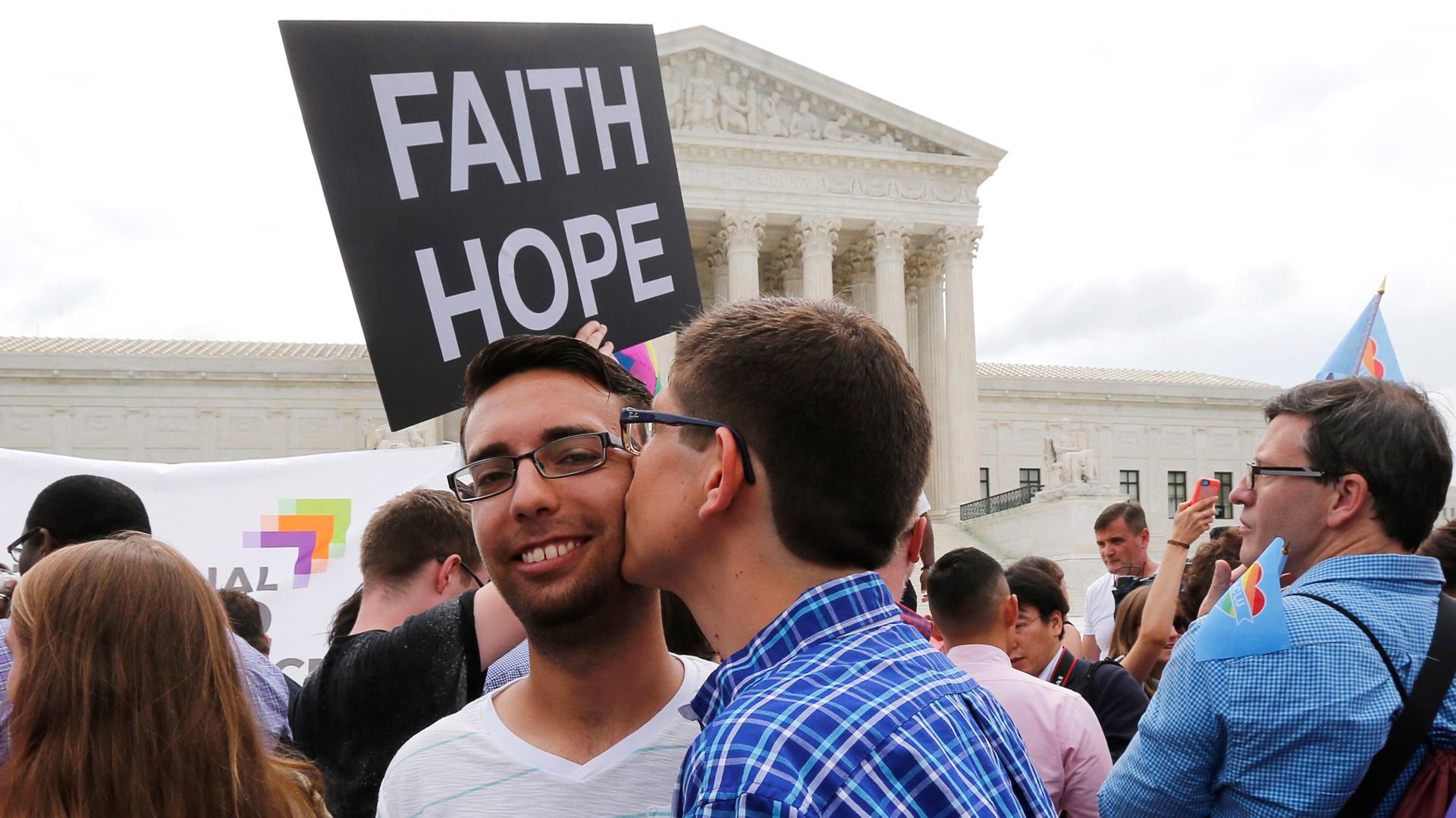Gay rights supporters celebrate outside the Supreme Court building in Washington on June 26, 2015. The court ruled 5-4 that the Constitution's guarantees of due process and equal protection under the law mean that states cannot ban same-sex marriages.
Supporters of marriage equality celebrated the Supreme Court’s ruling on same-sex marriage as a long fought victory in America’s culture war. Among them were people of faith.
The decision written by Justice Anthony Kennedy sought to take into account those Americans who object to same-sex marriage on religious grounds. The ruling mentions the words religion and religious a total of 54 times. Right off the bat, it offers this reassurance religious organizations: “ …the First Amendment ensures that religions, those who adhere to religious doctrines, and others have protection as they seek to teach the principles that are so fulfilling and so central to their lives and faiths.” Some will not find much reassurance in Kennedy’s reasoning here and will see Friday’s decision as a setback for religious freedom. Ryan Anderson writes about marriage and religious liberty at the Heritage Foundation.
“Marriage is sacred to those who live by their religions and offers unique fulfillment to those who find meaning in the secular realm,” Kennedy writes. He goes on to say that religious people who oppose same-sex marriage may continue to do so and that people should continue to debate the issue on the grounds of faith or otherwise. But, ultimately, Kennedy finds that, “[t]he Constitution …does not permit the State to bar same-sex couples from marriage on the same terms as accorded to couples of the opposite sex.” In his dissent, Chief Justice John Roberts also cites the principle of religious freedom and disagrees about what the Constitution means for same-sex marriage. “Many good and decent people oppose same-sex marriage as a tenet of faith, and their freedom to exercise religion is—unlike the right imagined by the majority— actually spelled out in the Constitution,” Roberts writes.
In his dissenting opinion, Justice Clarence Thomas mentions the prominent place that religious freedom has had in American history. “Many of the earliest immigrants to America came seeking freedom to practice their religion without restraint,” Thomas argues. He goes on to accuse the majority decision of short-circuiting the process where the American people themselves determine what constitutes inappropriate restrictions on religious expression, “with potentially ruinous consequences for religious liberty.” Roman Catholic bishops in Michigan released a statement on the Supreme Court decision.
Russell Moore president of the Ethics & Religious Liberty Commission of the Southern Baptist Convention.
The same-sex marriage ruling got swift reaction from GOP presidential contender, Bobby Jindal.
Outside the Supreme Court in Washington on Friday, there were chants of, “Love has won!” And joining in were people who wanted to show that their religious belief was not in conflict with the court’s decision on same-sex marriage.
We want to hear your feedback so we can keep improving our website, theworld.org. Please fill out this quick survey and let us know your thoughts (your answers will be anonymous). Thanks for your time!
